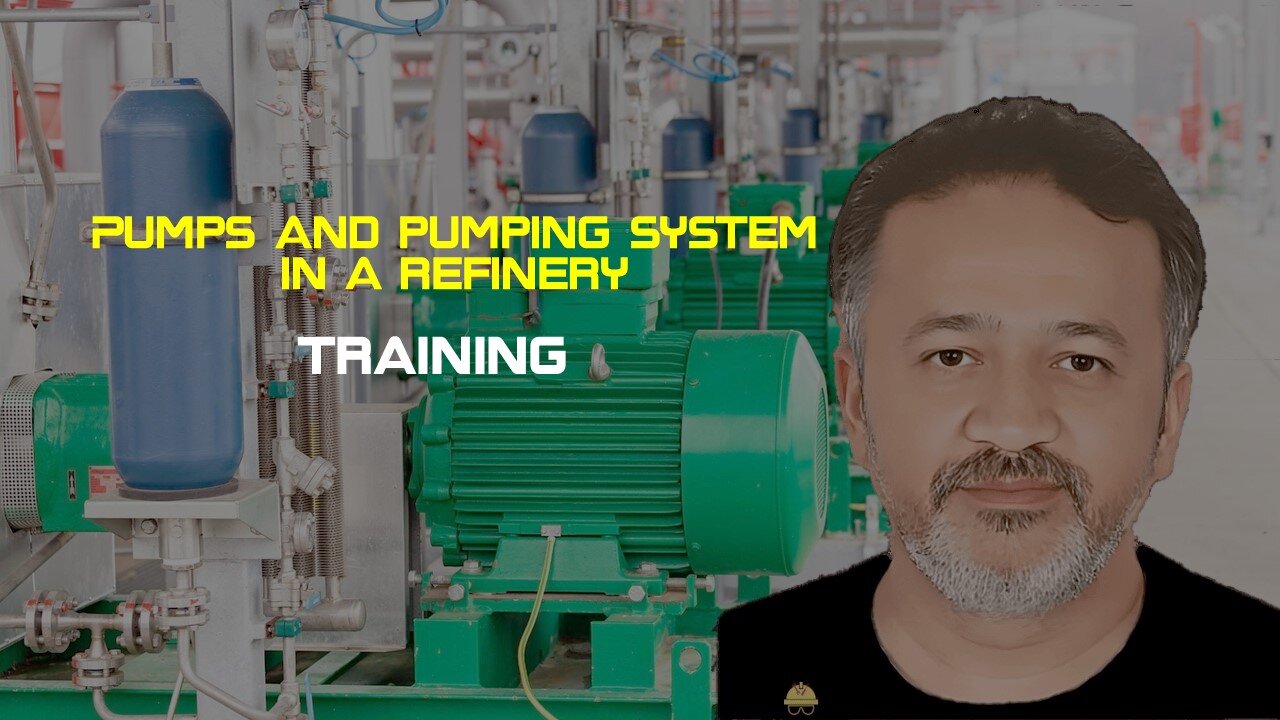Premium Only Content

Pumps: Understanding the Basics for Beginners| Mastering Pump Systems: Techniques and Best Practices
Pumps: Understanding the Basics for Beginners| Mastering Pump Systems: Techniques and Best Practices:
Pumps are mechanical devices designed to move fluids from one location to another. They play a crucial role in various industries and everyday life by enabling the transfer of liquids or gases in a controlled manner. Pumps are used to transport fluids in systems such as water supply networks, oil and gas pipelines, chemical processing plants, HVAC systems, and many more.
The primary function of a pump is to create flow and generate pressure to move the fluid through pipes or channels. This is accomplished by utilizing mechanical energy, typically supplied by an electric motor or an engine, to drive the pump's internal components.
There are different types of pumps, each suited for specific applications and fluid characteristics. The two main categories of pumps are centrifugal pumps and positive displacement pumps.
Centrifugal pumps work by converting the rotational energy of an impeller into fluid velocity. The fluid is drawn into the pump, accelerated by the rotating impeller, and then discharged at a higher pressure. These pumps are commonly used for high-flow, low-viscosity fluids.
Positive displacement pumps, on the other hand, operate by trapping fluid in a chamber and then pushing it out, providing a fixed amount of flow per revolution. These pumps are suitable for both high and low viscosity fluids and are commonly used for applications requiring precise flow control.
Pumps consist of several key components, including an impeller or rotor, a casing or housing, inlet and outlet ports, and various seals and bearings. The impeller is responsible for imparting energy to the fluid, while the casing directs the fluid flow and provides structural support. Seals are used to prevent leakage, and bearings support the rotating components.
Efficiency and reliability are crucial factors when it comes to pumps. Proper selection, sizing, and maintenance are essential to ensure optimal performance, minimize energy consumption, and maximize the lifespan of the pump. Safety considerations, such as proper installation and protection against overpressure or cavitation, are also critical to prevent damage and ensure safe operation.
In summary, pumps are mechanical devices used to move fluids by generating flow and pressure. They are integral to various industries and applications, enabling the efficient transportation of liquids or gases. Understanding the different types of pumps, their components, and their operating principles is key to utilizing them effectively in various systems and processes.
-
 1:00:20
1:00:20
The Tom Renz Show
1 day agoTrump Schools Zelensky, The Epstein Files FAIL, & What RFK Will Mean for Cancer
60.9K25 -
 42:47
42:47
Kimberly Guilfoyle
14 hours agoThe Trump effect: More Major Investment, Plus America First at Home & Abroad. Live w/Ned Ryun & Brett Tolman | Ep. 201
141K46 -
 1:29:23
1:29:23
Redacted News
12 hours agoWW3 ALERT! Europe pushes for war against Russia as Trump pushes peace and cutting off Zelensky
174K295 -
 57:56
57:56
Candace Show Podcast
16 hours agoHarvey Speaks: The Project Runway Production | Ep 1
164K106 -
 56:31
56:31
LFA TV
1 day agoEurope’s Relationship With America Is Over | TRUMPET DAILY 3.3.25 7PM
50.6K7 -
 2:04:45
2:04:45
Quite Frankly
14 hours ago"European Deth Pact, Blackout Data Breach, Epstein" ft. Jason Bermas 3/3/25
50.2K21 -
 1:32:46
1:32:46
2 MIKES LIVE
11 hours ago2 MIKES LIVE #187 Deep Dive Monday!
28.8K1 -
 44:25
44:25
CatfishedOnline
12 hours ago $2.12 earnedRacist Lady Shocked After Sending Money to a Nigeria Romance Scammer
36.5K8 -
 56:45
56:45
VSiNLive
12 hours agoFollow the Money with Mitch Moss & Pauly Howard | Hour 1
56.7K1 -
 2:28:18
2:28:18
Nerdrotic
15 hours ago $6.84 earnedOscars Aftermath | Super Chat Square Up - Nerdrotic Nooner 469
69.6K18